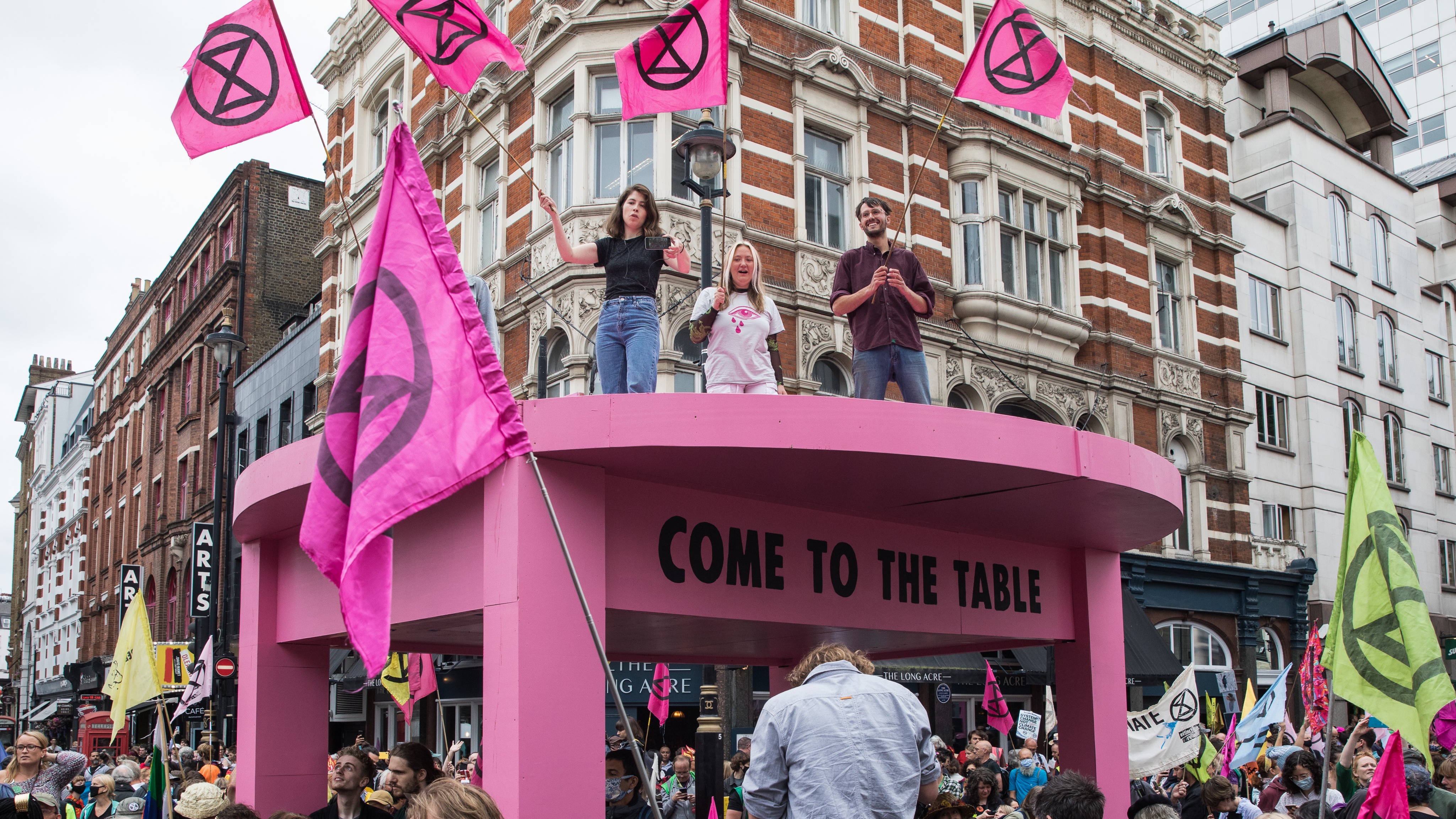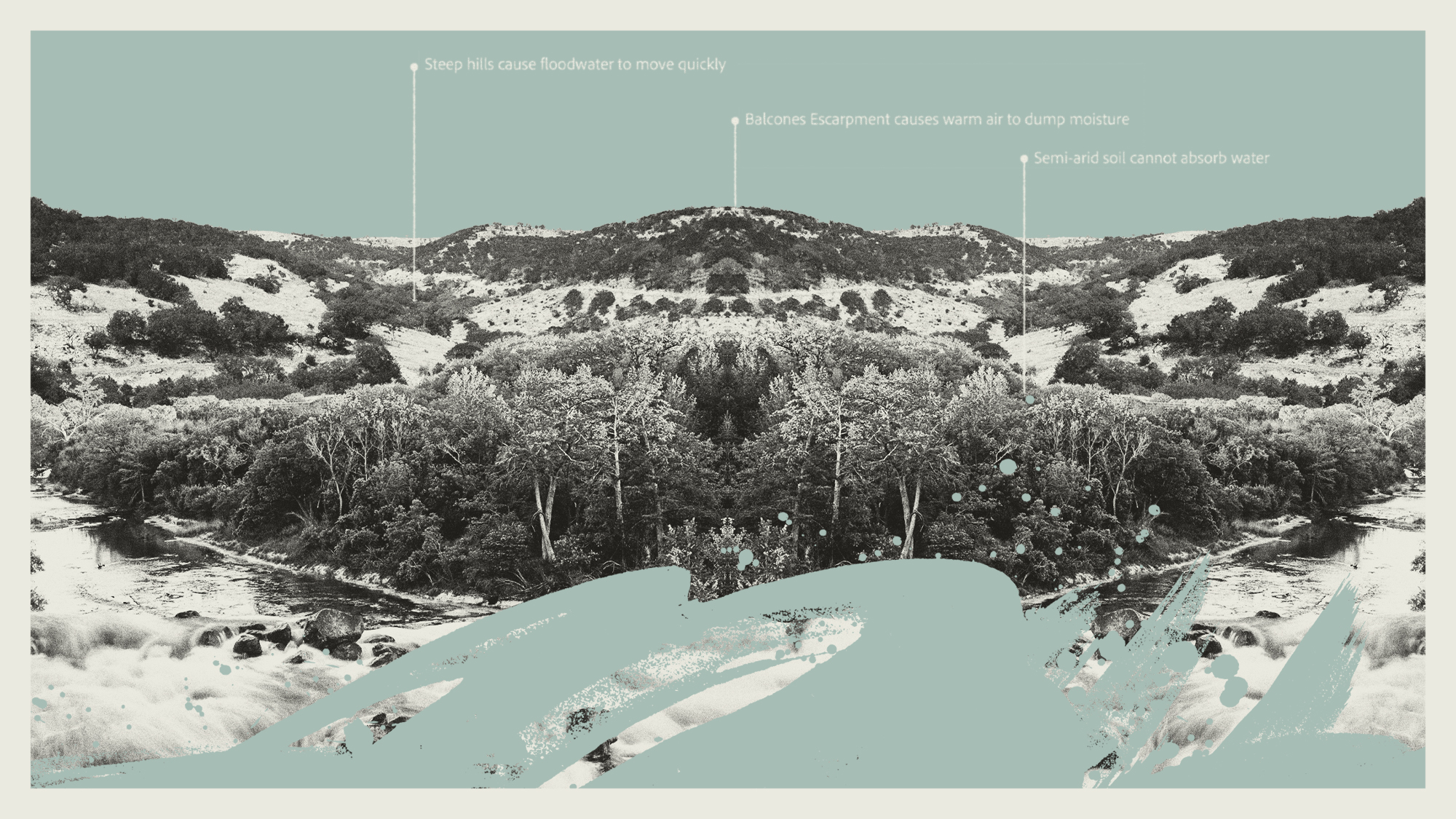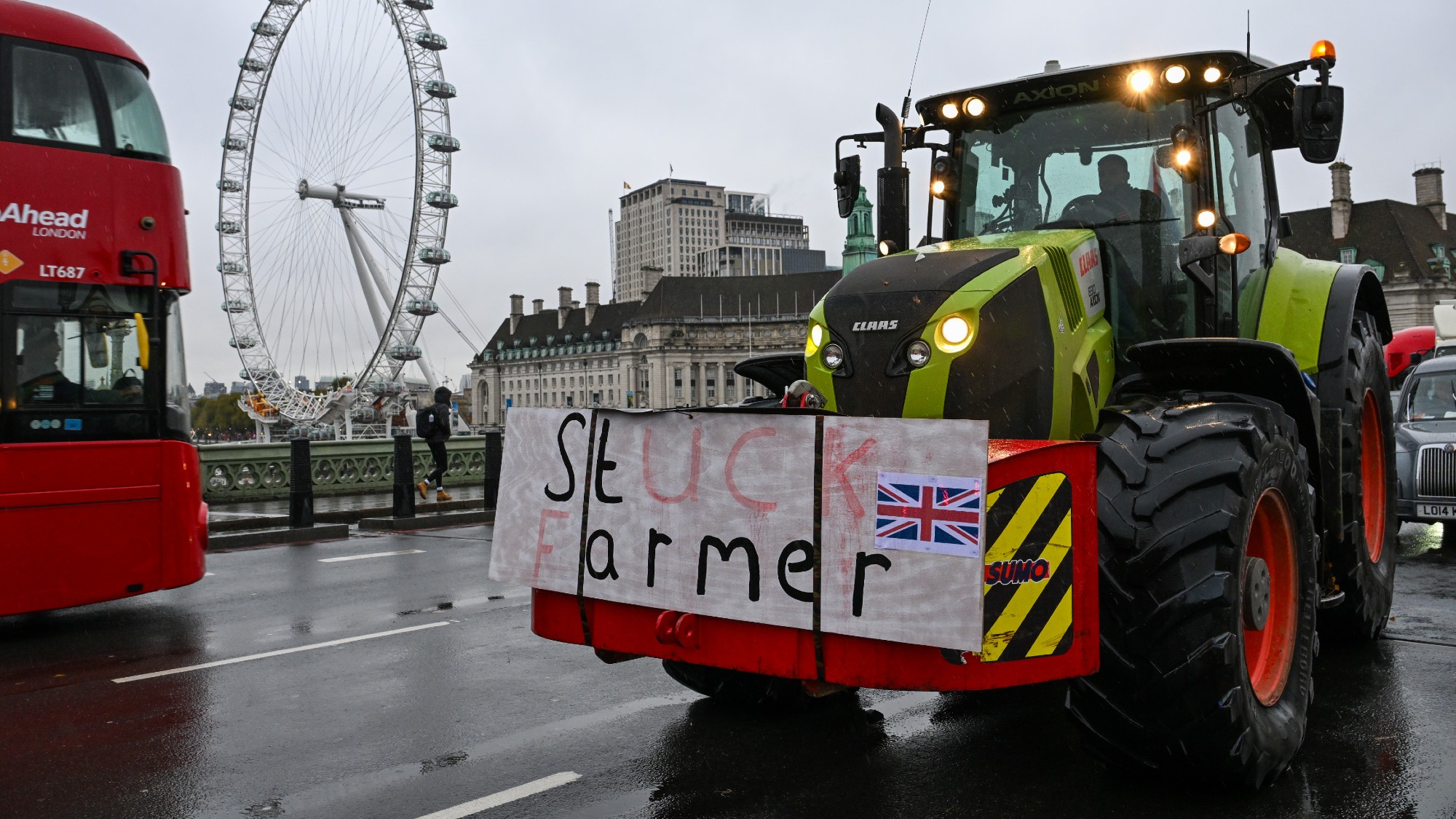Do Extinction Rebellion’s tactics help or hinder its cause?
Climate activists planning series of protests after ‘paralysing’ London’s West End

A free daily email with the biggest news stories of the day – and the best features from TheWeek.com
You are now subscribed
Your newsletter sign-up was successful
Extinction Rebellion campaigners blocked one of central London’s busiest junctions yesterday in the first of a new wave of planned protests in the capital.
London’s West End was “paralysed for hours” after climate protesters erected a giant pink table on the junction between Long Acre, St Martins Lane and Garrick Street, reported the Daily Mail. The disruption marked the beginning of a fortnight of protests that the group has dubbed its “impossible rebellion”.
Police had been “blindsided” when the activists converged on Trafalgar Square on Monday morning, said the paper. And the group’s tactics “further outsmarted” officers by driving vans down two streets close to the Long Acre junction, before activists chained themselves together under the vehicles’ wheels.
The Week
Escape your echo chamber. Get the facts behind the news, plus analysis from multiple perspectives.

Sign up for The Week's Free Newsletters
From our morning news briefing to a weekly Good News Newsletter, get the best of The Week delivered directly to your inbox.
From our morning news briefing to a weekly Good News Newsletter, get the best of The Week delivered directly to your inbox.
The protest followed the publication of a major review by the UN’s Intergovernmental Panel on Climate Change that said the climate crisis was "unequivocally" driven by human activity such as burning fossil fuels. It comes just months before the UK hosts the COP26 climate summit in Glasgow.
Wave of disobedience
The protest is the beginning of a “new wave of civil disobedience across the UK” from Extinction Rebellion (XR), The Independent said, with the group claiming that the City of London remains an “arch financier” of global carbon emissions. The protests seek to highlight the “considerable” contribution of the UK’s financial sector to the climate crisis, and “aims to draw attention to the government’s role in supporting polluting industries”.
The group has “thrown its weight behind a new, immediate demand”, Left Foot Forward added, namely that the government “stops all fossil fuel investment immediately”.
A free daily email with the biggest news stories of the day – and the best features from TheWeek.com
“There is no formal end date to the upcoming XR protests,” said the left-wing news site. Protesters plan to continue their campaign until their demands are met, meaning they could go on “significantly longer than the planned two weeks”.
The last major XR protests in London were part of the “Autumn Rebellion” actions in September 2020, when XR protesters disrupted roads around printing presses owned by Rupert Murdoch’s News Corp, which affected the distribution of The Sun, The Times and The Daily Telegraph, as well as the Daily Mail and the Evening Standard.
The group has performed a raft of stunts and protests since it came to prominence three years ago, including a memorable blockade of London’s Oxford Circus in April 2019. Then, protesters glued themselves to a pink boat daubed with the slogan “Tell the truth”, as well as occupying Waterloo Bridge, Marble Arch and areas close to Parliament Square.
Do XR’s tactics work?
Many have questioned the wisdom of XR’s tactics since it began campaigning in earnest in 2018, but the group enjoys significant public recognition.
According to YouGov, it is in the top 100 most famous UK charities and organisations, with 73% of the British public telling the pollster that they have heard of the group. Its popularity, however, is low, with just 19% of the public saying they approve of the group, while 19% say they feel neutral, and 35% disapprove.
A common criticism of XR has been that its tactics, usually acts of mass civil disobedience, are alienating to the British public at large.
“Acts of civil disobedience such as occupying bridges, guerrilla gardening and protest puppetry may appeal to seasoned activists, but are a turnoff for thousands of potential supporters who might walk past such occupations,” wrote Andre Spicer in The Guardian after XR’s occupation of central London in 2019.
And it is “not only XR’s tactics that undermine their cause, but a powerful and underrated force we might call tribal distaste,” said Clare Foges in The Times this week.
“When passing one of XR’s flag-festooned protests, middle England wrinkles its nose. It rages at the inconvenience caused, but also recoils from the tie-dyed trousers and tattoos, the piercings and Citizen Smith ramblings, the lexicon of “Empire 2.0” and “climate justice”, the dreadlocks, didgeridoos and drums.”
“In short, if you recoil from the messengers, the message is dead on arrival,” she argued. “This is a huge shame, because middle Englanders like me are finally undergoing an awakening to the urgency of this challenge.”
“But judging Extinction Rebellion by how well-liked they are is to miss the point,” argued Luke Tryl in The Independent. Indeed, the question of whether it is better to be well-liked or well-known “depends on what you’re trying to achieve”.
Every time the activists cause disruption, they “certainly attract scorn, but they also raise awareness of the climate crisis and get people talking about issues like net-zero targets in a way that no other campaign has been able to match.
“Ultimately, it doesn’t matter if you like Extinction Rebellion because that doesn’t affect how you feel about their issue,” said Tryl.
Extinction Rebellion certainly does not “aim to win a popularity contest,” wrote XR activist Marilyn Spurr in a letter to the New Statesman, “it aims to be effective.”
She continued: “Many of its activists have spent years signing petitions, writing to politicians, engaging in wildlife projects and going on authorised marches. This has laid the groundwork for our protests.”
But disputes over the group’s tactics aren’t limited to outside observers. XR’s main internal disputes have been over tactics, said The Economist.
In recent months, softer wings of the organisation seeking to work more closely with politicians have been sidelined, while more influence has been given over to those wanting to promote “riskier actions” – such as glueing teenagers to tube trains. Some XR activists believed this “would provoke a heavy-handed response from the state, and thus public sympathy”.
-
 Why is the Trump administration talking about ‘Western civilization’?
Why is the Trump administration talking about ‘Western civilization’?Talking Points Rubio says Europe, US bonded by religion and ancestry
-
 Quentin Deranque: a student’s death energizes the French far right
Quentin Deranque: a student’s death energizes the French far rightIN THE SPOTLIGHT Reactions to the violent killing of an ultraconservative activist offer a glimpse at the culture wars roiling France ahead of next year’s elections
-
 Secured vs. unsecured loans: how do they differ and which is better?
Secured vs. unsecured loans: how do they differ and which is better?the explainer They are distinguished by the level of risk and the inclusion of collateral
-
 Fifteen years after Fukushima, is Japan right to restart its reactors?
Fifteen years after Fukushima, is Japan right to restart its reactors?Today’s Big Question Balancing safety fears against energy needs
-
 Can the world adapt to climate change?
Can the world adapt to climate change?Today's Big Question As the world gets hotter, COP30 leaders consider resilience efforts
-
 Why are flash floods in Texas so deadly?
Why are flash floods in Texas so deadly?Today's Big Question Over 100 people, including 27 girls at a summer camp, died in recent flooding
-
 What are Trump's plans for the climate?
What are Trump's plans for the climate?Today's big question Trump's America may be a lot less green
-
 Starmer vs the farmers: who will win?
Starmer vs the farmers: who will win?Today's Big Question As farmers and rural groups descend on Westminster to protest at tax changes, parallels have been drawn with the miners' strike 40 years ago
-
 Is Cop29 a 'waste of time'?
Is Cop29 a 'waste of time'?Today's Big Question World leaders stay away as spectre of Donald Trump haunts flagship UN climate summit
-
 Why is Mexico City running out of water?
Why is Mexico City running out of water?Today's Big Question Climate change and bad planning bring on 'Day Zero'
-
 Is America running out of electrical power?
Is America running out of electrical power?Today's Big Question The nation's power grid appears to be reaching critical levels due to emerging technologies